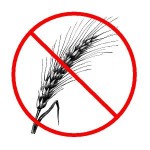If you have ever suffered from food intolerances, or you think you might have some, or you have been misagnosed with allergies, or any auto-immune disease, then you probably are aware of at least some of these myths about food intolerances.
1. Food intolerances aren’t a big deal and you don’t need to worry about them. This is the biggest one and one that can cause major problems for a lot of people. I personally have been on every drug for allergies and asthma that exist. Both over the counter and prescription and none ever worked effectively for me. It wasn’t until I found out that I had a lot of food intolerances and some of them severe that my allergies started to improve.
2. If you have a food intolerance you can just eat it and then use a drug to help you with the side effects. This one really bugs me and is part of the reason we have such a problem in the United States and in some other countries of the world with the overusage of drugs.
3. If you weren’t born with a food intolerance, or if you didn’t have it as a child, then you must not have it now. Actually food intolerances can appear at any time throughout your life.
4. If you don’t have a food intolerance to gluten, dairy, soy, eggs, nuts, or fish then it must not be a real problem since these are the most common. Reality is that you can have a severe food intolerance to anything and yes it is a real problem. For example I have a severe food intolerance to asparagus.
5. Once you have a food intolerance, there is nothing you can do to get rid of it. Again, this is false. Some food intolerances can be eliminated or lessened by avoiding that food for a period of time usually at least 6 months and sometimes a couple of years. Others can be helped by taking a probiotic daily for a few years and sometimes for the rest of your life.
6. There are no blood tests that can acurately determine food intolerances. This is a myth usually spread by western medicine doctors who do not fully understand how these work. In fact, the ALCAT test which is the one I had is proven to be one of the most acurate. Read about my experience here. There are other blood tests as well that can help you especially if you have a lot of them.
7. A normal healthy person has food intolerances. Again, this is false. Food intolerances along with allergies are a sign of a weaked immune system and in some cases even one or more autoimmune diseases.
8. The foods that your mother ate when she was pregnant with you and the foods you were fed as a child have no impact on your food intolerances. Actually the opposite is true.
9. You have to have eaten a food in order to have a food intolerance to that food. Actually you don’t. It is possible to have a food intolerance to something you have never eaten.
10. The same method of treatment will work for everyone. Just like the same diet or medication won’t work for everyone neither will the same food intolerance treatment. Acupunture helps a lot of people but so do probiotics, herbs, essential oils, the eliminate diet, and a rotation diet.
Request a free foundations of wellness supplements kit.
Autoimmune Healing Blueprint Kit with Ebooks and Video
Did you find this helpful? Donate to help me be able to continue writing more content.
My Favorite Products (Affiliate links- if you make a purchase I may earn a small commission)
Thrive Market - healthy gluten free, sugar free and speciality online food and household products
Silk and Sonder Monthly Journals and Planners
My Portable Infrared Sauna
Self Care Journal
Olipop - healthy soda with probiotics and prebiotics
Digestion Kit
Stress Oils











